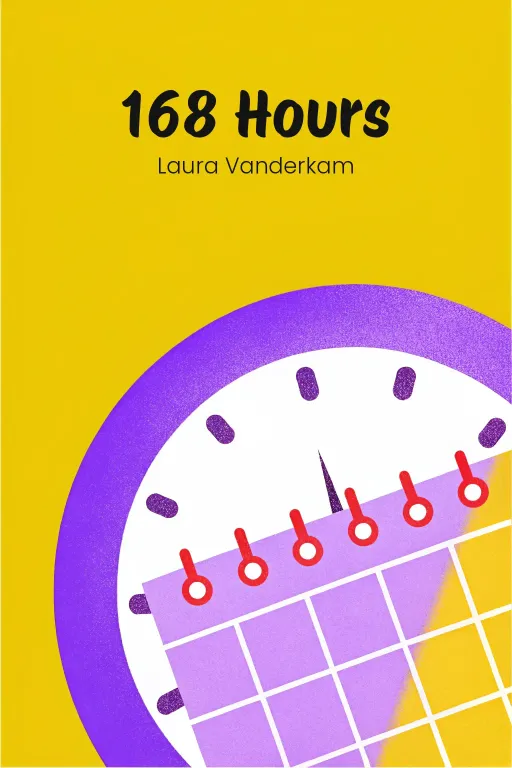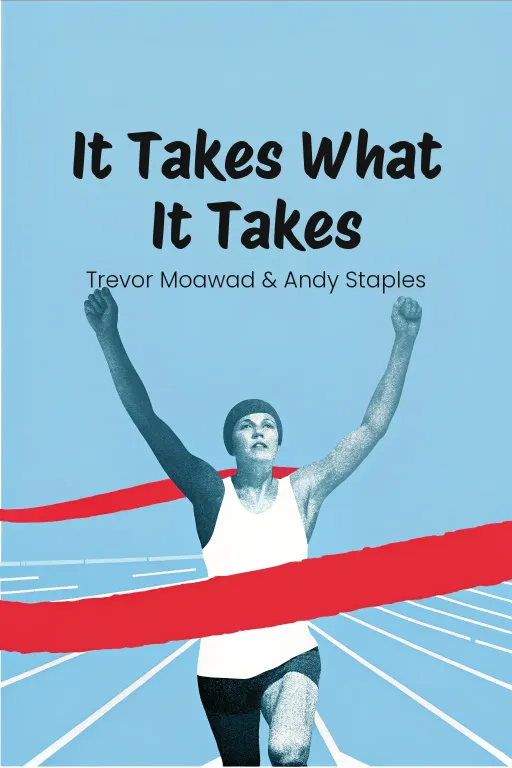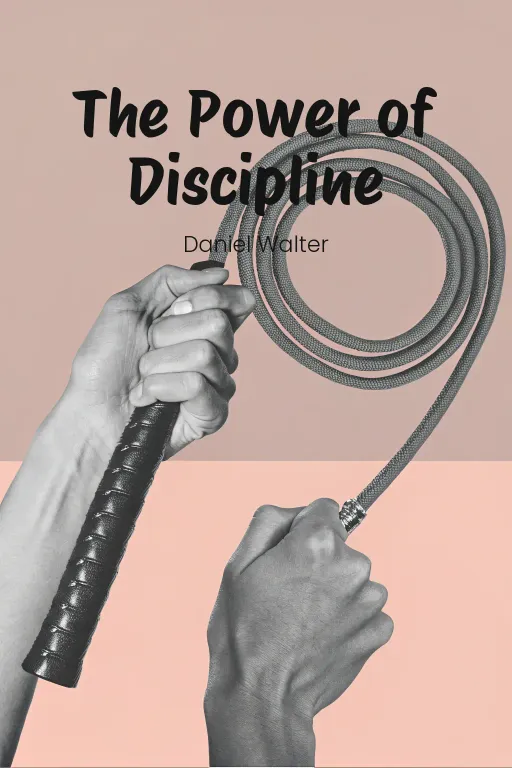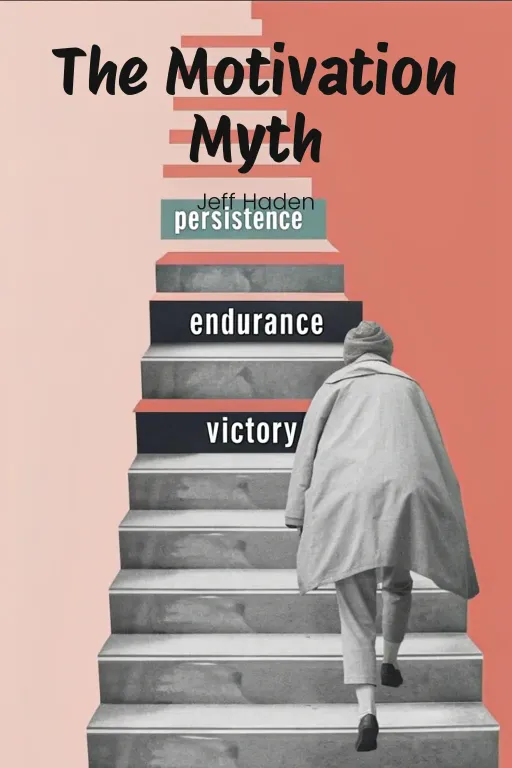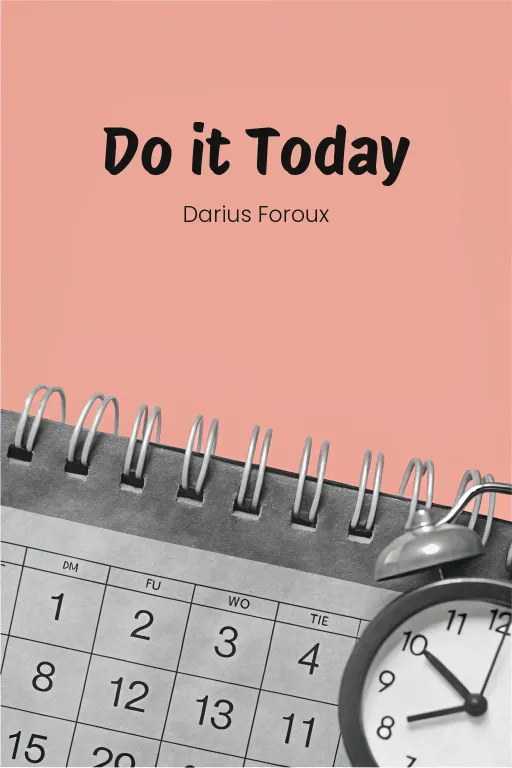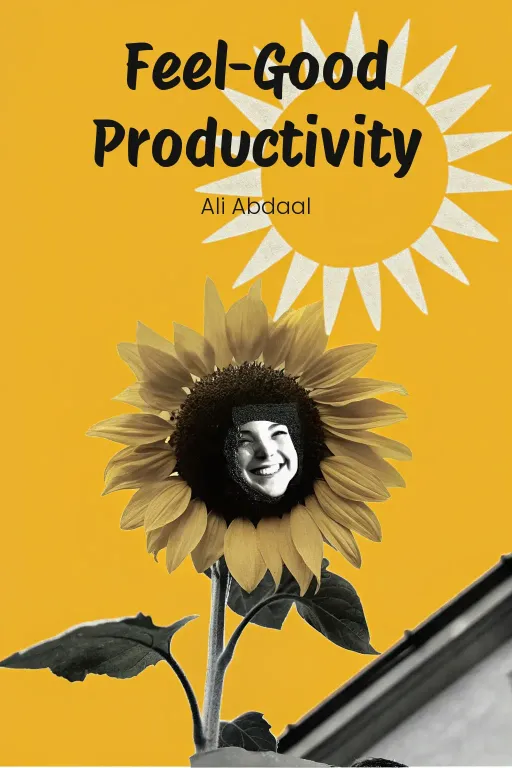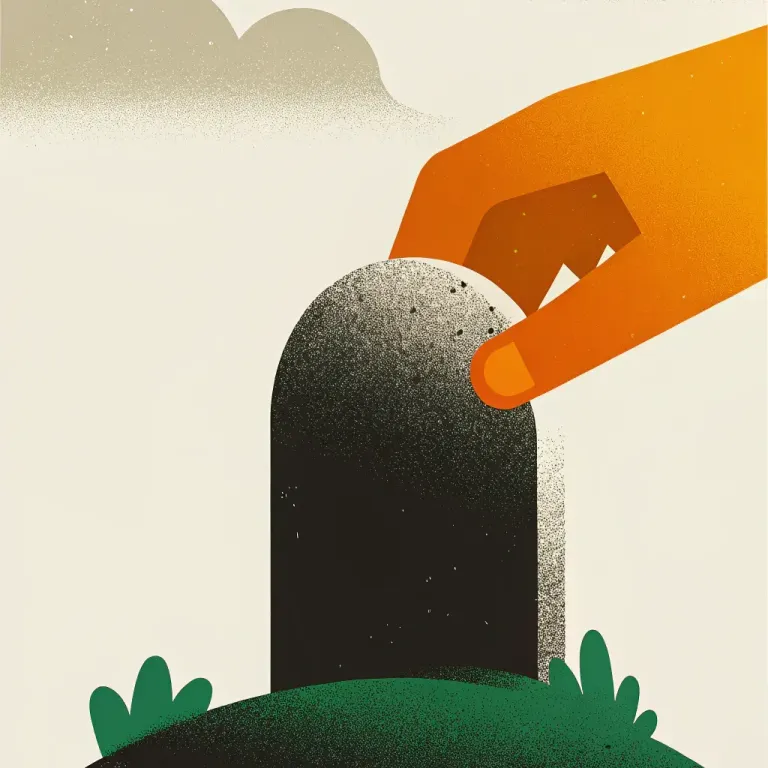
Daily Decisions Determine Destiny
Podcast by Beta You with Alex and Michelle
Turning Simple Disciplines into Massive Success & Happiness
Introduction
Part 1
Alex: Hey everyone, welcome! Today we're diving into a concept that's deceptively simple, but potentially life-changing. What if your success, your happiness, all those big dreams, hinged not on these massive, dramatic moves, but on tiny, almost imperceptible daily actions? Sounds interesting, right? Michelle: Okay, Alex, how invisible are we talking here? Are we suggesting some next-level manifestation techniques to increase our net worth simply by thinking about it? Or is this one of those ideas that sounds great on paper but falls apart the second you try it? Alex: <Laughs> Not quite, Michelle. We're talking about “The Slight Edge”—Jeff Olson's philosophy that highlights how consistent, small habits, repeated over time, lead to huge results. Nothing flashy, no instant gratification. Just steady progress impacting everything—your health, your career, your relationships, you name it. Michelle: Alright, I'll bite, but it sounds suspiciously like every other productivity book out there. What’s the differentiator? Alex: Fair point! Olson avoids hacks and quick fixes. Instead, he focuses on why these small actions are so powerful. It's the compounding effect they create, and how these tiny choices you make today can completely reshape your tomorrow. Think of it like planting seeds: The Slight Edge is the soil, the water, the sunlight—your job is to consistently nurture those seeds, even when you don't see immediate results. Michelle: A gardening metaphor, huh? Alright, now you’re speaking my language…sort of. Let me guess: people quit precisely because they don’t see those immediate results, right? Just like those abandoned gym memberships every February. Alex: Exactly! And that's where this approach shines. Today, we're dissecting it all. First, the core idea of the Slight Edge—what it is and why it actually works. Then, we'll look at how to implement it in real life, whether you’re aiming to build better habits or overcome obstacles. And finally, we'll explore the mindset shifts needed to stay the course, especially when progress feels, well, glacial. Michelle: So, philosophy, actionable steps, and mental toughness—planting, nurturing, and, hopefully, thriving. Okay, Alex, you've piqued my interest. Let’s get into this “small hinges swing big doors” idea because I have questions. A lot of them.
The Slight Edge Philosophy
Part 2
Alex: Okay, so, let's dive into the core philosophy here. The Slight Edge isn't about those big, dramatic moments, those huge leaps, or so-called "breakthroughs," as Olson calls them. It’s really about recognizing how the small, almost invisible decisions we make daily just accumulate over time. And I mean every decision – choosing between reading for 10 minutes and, say, binging Netflix. Michelle: Right, so it's the tiny, seemingly unimportant stuff – the choices we barely even notice. I mean, who's going to look back in ten years and think, "Wow, choosing oatmeal over pancakes “really” changed my life"? Alex: Exactly! That’s kind of the whole point. Olson argues that we often miss the impact of these little things because the results aren't immediate. He uses this water hyacinth analogy - you know, that little plant that doubles in size every day? For weeks, it covers barely any of the pond, and then, BOOM, seemingly overnight, it's everywhere. That's sort of how compounding works. Small choices pile up and, eventually… exponential results. Michelle: Okay, but most people crave instant feedback, right? Sticking to a new workout or budget, and if you don't see results fast, it’s, well, kind of demotivating. Does Olson address that whole patience thing? Alex: Definitely. Lots of people give up 'cause they expect quicker payoffs. Olson talks about how both success and failure are built on the same concept: little actions repeated over time. What changes is the direction those actions take you. You could drink soda daily instead of water. Nothing happens tomorrow, nothing next week. But a year later? You're looking at an extra 15 pounds, or maybe worse, health problems. But flip that. Choose water? You're healthier down the line. Same small choices, opposite directions. Michelle: So it’s about trajectory, then. If you're flying a plane and you're off by, like, one degree, you'll end up in a totally different place after a long flight. But does Olson give us a way to check our trajectory? Because tracking small actions sounds tough. Alex: Yeah, it’s less about immediate measurement, more about awareness. Olson emphasizes asking yourself: "Is this choice moving me towards my goals or away from them?" That suggestion is the rule to live by. It's not about being perfect, but about choosing a direction. And this is where things like writing your goals down and creating tangible, daily actions come in. Michelle: Ugh, goals. Always with the "write it down" mentality. What if someone has no clue where to begin or feels totally overwhelmed? Alex: <Laughs> Funny you should say that, actually! Olson's advice is kind of the opposite: start stupid small. He even suggests aiming for goals that feel hilariously simple, like reading one page a day or taking the stairs instead of the escalator. You build momentum through small, quick wins, and as they stack, you're just motivated to add more. Suddenly, "one page a day" becomes a new habit, and that tiny decision to take the stairs contributes to actually developing a fitness routine. Michelle: I like that—stupid small might be just my speed. But let’s add a hypothetical. Say I’m saving $1 a day. It’s going to take me forever to buy anything meaningful—so how does Olson’s philosophy really work for something like this? Alex: Okay, fantastic question. It involves combining those tiny financial actions with more of a growth mindset. Olson isn't just saying "save a dollar." He wants you to develop the habits that are going to make that dollar more valuable. Maybe finding ways to improve your skills or increase your earning potential. It's about the habits and mindset that really compound over time, not just the dollar alone. Michelle: So it’s about, like, integrating that slight edge everywhere– learning, health, career, relationships. You essentially get better applying the concept in one area, and easier it gets in others? Alex: Exactly! It's a "ripple effect," as Olson calls it. Focus on one tiny, positive habit, and it starts to influence other areas. Let's say you walkten minutes every morning. After a few weeks, you have more energy, so you start prepping healthier meals, then you're sleeping better. Before you know it, a single walk has created a domino effect. Michelle: But what if someone's momentum stalls? They're walking, but they don't actually lose any weight? They're killing it at work, but they don't get promoted. Does Olson have advice for that "stuck point"? Alex: Oh yeah, he does. It’s about believing in the overall process. He says that progress often feels invisible, like the early growth of that water hyacinth. Double down on daily actions and remember your vision – why you started to begin with. Stalling doesn't mean failure; it's just often just a "lag phase" before you start seeing results. Michelle: Got it. So it’s about playing the long game, even when it feels like nothing’s happening. Still, I imagine that’s where most people quit, right before they break through. Alex: Exactly. That's also probably why Olson emphasizes having a positive mindset. He often discusses surrounding yourself with uplifting influences. Consuming negative media or interacting with naysayers every day? Patterns really can pull you away from progress before you actually even see the benefits. Michelle: And here I thought binge-watching late-night news was building my intelligence. So, Alex, what’s the philosophical kicker here—the big “aha” Olson wants us to walk away with? Alex: It's this: lasting success doesn't necessarily require unique talent or some huge effort. It's about simple things done consistently. And on the flip side, failure comes from neglecting those small disciplines. The real beauty of "The Slight Edge" is anyone can apply it, starting right now, no matter where they are. Michelle: So the real secret sauce: be mundane, be disciplined, and trust the process—even when it feels invisible. Okay, I grudgingly admit I’m warming up to this. Keep going; I’m curious where else this takes us.
Practical Applications Across Life Domains
Part 3
Alex: Right, so grasping this philosophy naturally steers us toward seeing how it fits into different parts of our lives. What’s great about the Slight Edge is it’s so versatile, not just a one-trick pony. It really bridges the gap between theory and doing, showing how these ideas become real actions day to day. Let’s kick off with the basics: health. Michelle: Sure, makes sense. If the health goes south, nothing else really works, does it? But, let me guess, we’re about to get another lecture about “eat your greens and hit the gym"? Alex: <Laughs> Sort of, but not quite. Olson does stress those basics, of course, but it’s more about how you tackle them. Instead of jumping on some crazy diet or workout, it’s about building those small, sustainable habits. Like, walk for 10 minutes, have an extra glass of water, ditch the soda. Sounds simple, right? But these tiny actions are the building blocks for big changes in the long run. Michelle: Ten minutes? I mean, that sounds like trying to knock down a brick wall with a feather. How do these tiny steps really make a difference? Alex: Good point. So, Olson gives this example: a woman's trying to lose weight and feels totally overwhelmed. Instead of killing herself at the gym, she just commits to 15 minutes of exercise each day. That’s it. No extra pressure. Over time, this small step becomes routine, and before she knows it, she's making other healthy choices, like better food, more sleep. A few months later, she sheds the pounds and feels amazing. Michelle: Okay, I get it – managing expectations while giving yourself room to grow. But doesn’t that need a ton of willpower? Motivation usually crashes and burns, especially when you can’t see results right away. Alex: Exactly, and that’s where mindset and consistency are key. Olson says results don't just magically appear; they often lag behind what you’re putting in. You’ve just got to trust the process, even when it looks like nothing’s happening. When you stick to the discipline of the habit, instead of chasing instant results, that’s when you start seeing real changes. Michelle: So the health perks build up over time, even if you’re not seeing them immediately. Like compounding interest, which brings me to money. How does this idea play out with our finances? Alex: Oh, finances, that's a big one. Just like with health, the Slight Edge avoids those "get rich quick" schemes and pushes for small, consistent steps. Think about saving a little bit each month, making a budget, or learning more about investing. Sounds simple, but they can be life-changing over time. Michelle: Yeah, but saving fifty bucks a month feels like, you know, a drop in the ocean. How do you stay motivated when it feels so insignificant? Alex: That’s where Olson’s compounding principle really comes in. Remember the shoeshine worker? It’s a perfect example of a missed chance. Instead of using her downtime to pick up useful skills, she chose entertainment. Fine in the moment, but overtime, that’s a lost opportunity to learn. And on the flipside, those saving money, investing, or gaining skills often find themselves much more secure later in life. It's all about looking at the bigger picture. Michelle: I see, those small actions build up over time and something else stood out. The way Olson frames those choices as directional arrows. Like, with every little habit, you’re either getting closer to or further away from financial security, even when it doesn’t feel like it. Alex: Exactly. And Olson’s not just about saving or cutting back; he says to pair those with learning and mindset shifts - understanding small investments or learning new skills to open doors later on. It turns those small savings into seeds for something much bigger. Michelle: Okay, we’ve looked at health and money—two big pieces of the puzzle. But what about relationships? How do ten-minute walks or fifty-dollar savings help with a marriage or dealing with difficult coworkers? Alex: <Laughs> Fair question, but relationships benefit from consistency too. Olson’s philosophy centres around small but meaningful actions —showing appreciation, actively listening, remembering small details. It sounds simple, but those gestures build trust over time. Michelle: Got it, it's like watering a plant. A little care here, some sunlight there, and boom – a resilient friendship grows. Does Olson have any real-world examples? Alex: Absolutely. He talks about this one workplace transformation: An employee just starts recognizing her colleagues’ efforts—simple thank-you notes, acknowledging team wins. At first, it seems small, but, over the weeks, those small actions shift the office vibe. Gratitude becomes contagious, teamwork gets better, and it’s just a better place to be. Slight Edge in action, just small consistent habits. Michelle: Okay, works with coworkers, but can it handle a full-blown communication breakdown in a marriage? Alex: Definitely. So, Olson thinks that small, positive patterns in daily interactions—checking in, showing appreciation, saying thank you—create a bond that’s stronger than anything big, grand and dramatic. Relationships, in his view, are like the water hyacinth... you don’t see the transformation overnight, but over time, that consistency forms a deep, unshakable connection. Michelle: I gotta say, Alex, I’m seeing the power of this. Small, consistent actions, direction over speed, small ripples becoming waves. But before we get too mushy, let’s talk self-improvement. How does the Slight Edge help us grow as individuals? Alex: Personal growth, Michelle, that’s where this philosophy really shines. So, Jeff Olson uses this great idea of the flywheel. Starting a new habit—language learning or de-cluttering, it feels like you’re trying to push something that just won’t move. Apply consistent effort, and it slowly starts to turn, gathering momentum as you go. Michelle: Gotcha, so this is where that whole "one page a day" idea you mentioned earlier comes in, right? Or that ‘start stupid small’ concept? Alex: <Laughs> Exactly, Olson feels that manageable, incremental steps build progress and confidence. He shares this story about Valerie Thomas: she tackled that mountain of clutter in her basement. Instead of being overwhelmed, she focused on just one garbage bag each day. Over time, that basement was totally transformed. Michelle: Alright, I’m seeing why this resonates for a lot of folks. It's less about huge changes and more about just chipping away at something until it’s unrecognizable. Alex: Exactly. Olson ties it back to education – read ten pages of a self-help book each day. That’s thousands of pages each year! The point isn't just the amount of books; it’s the combined knowledge and insight that follows. Michelle: So you’re not just building a habit but also building a library of tools you wouldn’t have otherwise. Okay, that flywheel idea makes sense. It’s not always pretty, but it's effective. Keep going, Alex, I want to see this ripple effect in action.
Overcoming Challenges and Sustaining Growth
Part 4
Alex: So, keeping those strategies in mind, the conversation naturally turns to tackling the challenges that can hold us back. This is where the philosophy really gets practical, Michelle – addressing the common missteps and resistance people face when trying to maintain long-term growth. Michelle: Ah, we're diving into the messy middle, are we? Where doubt creeps in, setbacks happen, and you wonder if it's all worth it. Sounds like the Slight Edge colliding with reality. Alex: Precisely. Let's start with a big one: our misconceptions about success and failure. Olson talks about how society has kind of programmed us to see success as a straight line, and failure as a sign we're just not cut out for something. But actually, think about it, failure is a really essential part of the process. Look at Edison, right? Thousands of failed attempts before the light bulb, each one showing him what “not” to do, bringing him closer to the solution. Michelle: The guy practically failed his way to success, didn't he? But okay, I can buy into failure as a teacher. The issue is, modern culture isn't so keen on giving us second, third, or thousandth chances. We're stuck in this instant gratification loop where patience seems... well, old-fashioned. Alex: And that’s really the core of the problem. Olson points out that this desire for immediate results often sabotages long-term success. He uses the metaphor of a penny doubling every day for a month. It feels so slow at the start—one cent, two cents, four cents… Then, suddenly, by day 30, you’re looking at over $5 million. The message is don’t underestimate the power of consistent action! Those small actions may feel pointless at first, but they compound into significant results over time—if you stick with them. Michelle: Yeah, but here's the thing, Alex. When people hit a wall, when progress slows to a crawl, they assume they're failing. So, how does Olson suggest making peace with that slow, often ugly phase before the results actually materialize? Alex: He suggests we reframe how we see setbacks. Instead of seeing obstacles as stop signs, look at them as detours. Olson talks about how each misstep is actually fine-tuning your GPS. Remember the Apollo spacecraft analogy? It was off course 97% of the time but still reached the moon because it continually corrected itself. That same principle applies to personal growth. Michelle: Huh, seeing failure as recalibration makes it sound a bit less awful—like you're still moving forward, just not in a straight line. But speaking of traps, let's talk about this instant gratification thing. Isn't that the weak spot of this whole philosophy? Alex: I think you're right, it definitely is a trap. Olson points out how our society celebrates shortcuts and quick fixes, which often gives us fleeting, superficial wins. He shares the example of the shoeshine woman who spent her breaks reading escapist novels instead of self-improvement books. It seems harmless, but over years, it cost her the chance to gain skills or financial insight that could have really changed her life. It’s a reminder that even small instances of instant gratification can slowly undermine long-term potential. Michelle: Escapist fiction strikes again! But let's be honest, choosing the harder path, like personal growth, isn’t as instantly satisfying as, say, binge-watching your favorite show. What's the solution here? Alex: The key is recognizing the power of delayed gratification—that the short-term sacrifice is an investment in something much bigger down the road. Olson emphasizes building discipline through "stupid small" habits–actions so minor they hardly even feel like effort. It's about building a foundation, right? So, instead of trying to read an hour of personal finance every day, maybe start with five minutes. Once that habit becomes solid, it's much easier to scale upward. Michelle: Okay, stupid small wins, part two. But what if the problem isn't laziness or impatience – what if it's just plain fear? Fear of failing, fear of leaving their comfort zone? Alex: That's a big one. Olson goes into detail about how important it is to step outside of our comfort zones. He explains that while comfort feels safe, it often locks us into stagnation. Growth means moving into unfamiliar territory, kind of like an entrepreneur quitting a stable job to chase their dream. Sure, stepping into uncertainty forces you to adapt, but that’s where resilience and new opportunities are born. Michelle: So, leaving your comfort zone is like upgrading your life's operating system – you might not want to do it, but once it's installed, everything runs smoother. Do you have an example for someone taking the plunge? Alex: Sure, Olson gives the example of athletes—like a runner training for a marathon. Continuing to run the same five miles every day keeps them comfortable, but adding even a slight increase—say, just one more mile—pushes their limits. Over time, the discomfort of those extra miles builds the endurance and strength needed for the marathon. Small, uncomfortable pushes lead to big breakthroughs. Michelle: Alright, discomfort equals progress—like ripping off a Band-Aid, but slower. But once you've stepped into that growth zone, how do you make sure you “stay” there instead of falling back into old habits? Alex: Reflection is essential here. Olson emphasizes the importance of constantly reviewing your actions, much like our Apollo mission earlier. He shares a story about Valerie Thomas, who transformed her cluttered basement one trash bag at a time. It wasn't just breaking the task into chunks that kept her going—it was celebrating her small victories and making adjustments as needed. Reflection helps you both recalibrate and stay motivated. Michelle: So, it's like checking your rearview mirror on a road trip – making sure you’re still headed in the right direction. I can see how reflection keeps you from the "are-we-there-yet?" doom spiral. Anything else Olson suggests? Alex: Yes, he also highlights resilience which means sticking with the process even when momentum fades or setbacks happen. Progress is rarely linear, but if you keep up the habit of small, consistent actions, course corrections become easier. Think of it like piloting that Apollo mission: you might be off course 97% of the time, but the key is to keep steering toward the destination, no matter how many adjustments it takes. Michelle: So, the takeaway's pretty clear. Success isn’t about never failing or finding the fastest shortcuts. It's about persistent effort, staying adaptable, and accepting that growth isn’t always neat or linear. Alex: Exactly. Olson’s philosophy is a masterclass in resilience, patience, and believing in the power of small actions. By changing how we see failure, rejecting instant gratification, stepping out of our comfort, and committing to reflection, anyone can use these principles to create real, lasting impact.
Conclusion
Part 5
Alex: Okay Michelle, let’s bring it home. So today, we really dug into “The Slight Edge”, right? This idea that those tiny, consistent actions, you know, the ones we hardly even notice, they compound into massive results over time. It's all about those “little” things that seem so unimportant at first, but they completely steer your life in the long run. Michelle: Right, so it’s not about hitting the jackpot, it’s more like consistently buying lottery tickets? Alex: <Laughs> Not exactly! It’s less about luck and more about consistent effort in the right direction. We talked about how this applies everywhere—health, money, relationships, you name it. Start super small, take just one simple step at a time, and have faith that you’ll build momentum. We're not talking about overnight makeovers here, but a steady climb. Michelle: And we also got into the tricky stuff. Like, how do you stay motivated when you can't see any progress? Or how do you not beat yourself up when you stumble? And how do you avoid chasing those shiny, instant-gratification objects? It's about planting seeds and actually caring for them, even when you don't see anything sprouting right away. Alex: Exactly, and that's the core of it. Success isn’t about these big, flashy moves. It’s built on those small, deliberate choices that you make day in and day out, year after year. So, ask yourself, "What's “one” tiny, 'slight edge' decision I can make today?" It doesn’t have to be earth-shattering. Just get started and keep at it. Michelle: So, it's kind of like compound interest, but for your life instead of your bank account? Alex: Precisely! Compound interest for your life – I love that analogy! Michelle: Because, like Olson says, every choice you make is either moving you closer to your goals or further away. And which direction you go? Well, that’s all on you. So, everyone, get out there and take that first step, even if it feels ridiculously small.


